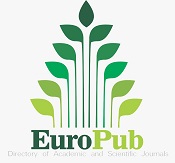Excessive Use of Drinking Water in Cuenca, Ecuador: A General Systems Theory Approach
Abstract
The city of Cuenca, Ecuador, faces a serious environmental challenge related to the excessive consumption of drinking water, which reaches 200 L/person/day, doubling the recommendation of the World Health Organization (WHO). This article analyzes this problem from the General Systems Theory (GST), identifying the interaction between the natural, social and infrastructural subsystems. It examines the dynamics of interdependence, feedback and emergent properties that generate significant risks for water sustainability projected to the year 2050, when a critical deficit is expected due to population growth and poor water use practices. Comprehensive systemic strategies are proposed that include ecosystem conservation, infrastructure modernization, and the promotion of responsible consumption patterns. This approach seeks to ensure the long-term sustainability of the city's water resources.
Downloads

Downloads
Published
How to Cite
Issue
Section
License

This work is licensed under a Creative Commons Attribution-NonCommercial-ShareAlike 4.0 International License.
The Journal declines any responsibility for possible conflicts derived from the authorship of the works published in it.
The originals of the journal Acordes, published in electronic version, are property of the Faculty of Economics and Administrative Sciences of the University of Cuenca, being necessary to cite the source in any partial or total reproduction.
Unless otherwise indicated, all contents of the electronic edition are distributed under a Creative Commons Attribution-NonCommercial-ShareAlike 4.0 International License.




